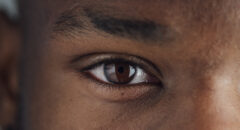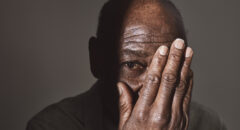Real-world data (RWD) is becoming increasingly important for understanding how well medications and treatments work in everyday settings, especially for diverse populations like Black communities. It offers valuable insights beyond the controlled environment of clinical trials. In a Facebook Live town hall with patient advocate Ricki Fairley, Dr. Lynn McRoy and breast surgeon Dr. Monique Gary, BDO shares how RWD plays a crucial role in saving the lives of Black women.
What exactly is Real-World Data (RWD)?
Real-world data (RWD) is information about health and health care collected outside of tightly controlled clinical trials. It comes from various sources that reflect everyday medical practices. Here are some examples of RWD:
- Electronic health records (EHRs): This is the digital version of a patient’s medical chart, containing information like diagnoses, medications, allergies, and treatment history.
- Medical claims data: This data comes from insurance companies and includes details about medical services provided, diagnoses, and costs.
- Patient registries: These are databases that track specific diseases or conditions, providing insights into long-term outcomes and treatment effectiveness.
- Patient-reported outcomes: This data comes directly from patients and reflects their experiences with a particular treatment or condition, including quality of life and side effects.
Fixing the Underrepresentation Problem
Clinical research often lacks diverse participants, particularly Black individuals. Dr. Lynn McRoy from Pfizer highlights this issue: limited initial trials might not capture how a drug works in different populations, especially when those populations are underrepresented. RWD helps bridge this gap by providing data from real-world settings where diverse patients are better reflected.
Capturing real-life experiences
Clinical trials often exclude patients with multiple health conditions, which are common in the general population, including Black communities. RWD captures patients’ experiences in real-world settings, reflecting the diversity of health backgrounds and socioeconomic realities. As Dr. McRoy explains, analyzing RWD requires understanding the context of the data to draw meaningful conclusions. “Sometimes real-world information, there may not be context,” Dr. McRoy told BDO. “You might not have the information to make relative sense of things. Right. But when you can look at that information and try to understand what population does it represent [and] where the appropriate statistics apply.”
Spotlighting potential health disparities
RWD can identify potential discrepancies in treatment outcomes or side effects among different populations, including Black individuals. This information is crucial for developing targeted approaches to address these disparities and promote health equity. Dr. Monique Gary emphasizes the lack of data specific to Black women, highlighting the need for more comprehensive data to inform even basic healthcare guidelines. “For Black women, we just don’t have data,” said. “We just don’t have enough data.”
Informing patient-centered care
RWD offers valuable insights into patient experiences, preferences, and quality of life, which traditional clinical trials often overlook. Dr. McRoy explains how RWD complements clinical trials by providing information on how a drug works in real-world settings, adding to the understanding of its effectiveness. “When we then get large samples of data from large numbers of patients who’ve been treated, we can balance those characteristics and come up with information that complements what we’ve learned in the clinical trial,” she said.
Empowering patients and advocates
RWD empowers patient advocacy groups and individuals to understand treatment options and make informed decisions about their healthcare. Ricki Fairley emphasizes the value of RWD in demonstrating how a drug performs in real-world situations, allowing patient advocates to confidently share this information with others.
While RWD can’t replace the strictness of randomized controlled trials, it offers a valuable complementary perspective. This combined approach can help address the underrepresentation of Black individuals in clinical research and lead to more equitable and patient-centered healthcare.
To learn more about clinical trials for Black folks, discover our Clinical Trials Resource Center.








